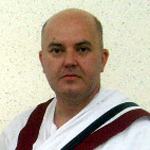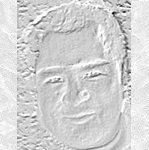Election MMDCCLX (Nova Roma)
THIS IS AN ARCHIVED PAGE DOCUMENTING THE INTERNAL HISTORY OF NOVA ROMA: LEARN MORE ABOUT ARCHIVED PAGES
|
Home | Latíné | Deutsch | Español | Français | Italiano | Magyar | Português | Română | Русский | English
⚜⚜⚜ Site Index - Key Pages ⚜⚜⚜
A second election has been called.
Contents |
On prid. Id. Oct. ‡, Consul Tiberius Galerius Paulinus called for candidates for magistracies for the year MMDCCLXI.
Tribune Marcus Curiatius Complutensis called for candidates for Plebeian offices.
Voting Schedule
Comitia Centuriata
The Comitia centuriata election will take place from: 09:00 PM, 19 November (Roma time) to 09:00 PM, 28 November (Roma time). The diribitores shall provide reports of the progress of the voting in accordance with the provisions of the Lex Fabia de Ratione Comitiorum Centuriatorum.
- 9:00 PM, 19 November: Voting by the Centuria praerogativa only begins. Centuria praerogativa is centuria III.
- 9:00 PM, 20 November: Diribitores capture tally of Centuria praerogativa.
- 9:00 PM, 21 November: Voting by all first class centuries now permitted ( first class = century 1-14).
- 9:00 PM, 23 November: Diribitores capture tally of all first class centuries.
- 9:00 PM, 24 November: Voting by all centuries now permitted ( all centuries = century 1-51).
- 9:00 PM, 28 November: Voting ends.
Comitia Populi Tributa
The Comitia Populi Tributa election will take place from: 09:00 PM, 19 November (CET) to 08:59 PM, 25 November (CET).
- The presidium (the first tribe to be counted) shall be tribe VI: Cornelia.
Comitia Plebis Tributa
Voting on the Plebiscitum de consecratione:
- The contio begins in 16 November ,18:00 Roman Time.
- Voting shall begin in 19 November, 18:00 Roman Time.
- Voting shall end in 28 November, 18:00 Roman Time.
Comitia Centuriata
Voting in this comitia has ended.
Special procedures for voting in comitia centuriata.
- Find your century. Go to the Album Civium. Log in, go to your page and find the century to which you are assigned.
- Compare your century with the centuria praerogativa (listed above). If you are in this century you may vote in the first round or in any other round of the election.
- If you are not in the centuria praerogativa, are you in another "first class" century? These are centuries I to XIV. All citizens who are in first class centuries may vote in the second and third rounds.
- If you are not in a first class century, then you must wait for the third round of balloting.
If you vote before your correct time, your vote won't be counted.
The comitia centuriata is one of three voting assemblies within Nova Roma. The main function of this assembly is to elect the year's two praetores, two consules and one of the two censores. It is sometimes called to vote during the year on laws, but this function is usually performed in the comitia populi tributa. It is also empowered to try legal cases in which a citizen is subject to permanent removal of citizenship.
The offices, number of openings, and candidates are:
Censor (1)

|
| Tiberius Galerius Paulinus |
| Statement... |

|
| Marca Hortensia Maior |
| Statement... |
Result: Tiberius Galerius Paulinus
Consul (2)

|
| Marcus Moravius Piscinus Horatianus |
| Statement... |

|
| Titus Iulius Sabinus |
| Statement... |
Result:
Praetor (2)

|
| Marcus Curiatius Complutensis |
| Statement... |

|
| Marcus Iulius Severus |
| Statement... |
Result:
Comitia Populi Tributa
Voting in this comitia has ended.
The comitia populi tributa (tribal assembly of the people) or comitia tributa (tribal assembly) is made up of all citizens, grouped into their respective tribes. It is empowered to elect the quaestors and curule aediles, and to enact laws and to try legal cases that do not involve permanent removal of citizenship. The comitia populi tributa is governed by lex Tullia de comitiis habendis.
Leges
Read the text of several rogationes, laws that have been proposed.
Candidates for voting in Comitia Populi Tributa
The offices, number of openings, and candidates are:
Curule Aedile (2)

|
| Publius Memmius Albucius |
| Statement... |

|
| Sextus Lucilius Tutor |
| Statement... |
Result:
Quaestor (8)
The quaestura (quaestorship) is one of the magistracies of Nova Roma, responsible to serve as primary assistants of the higher magistrates and guardians of the Treasury of Nova Roma. The quaestors are the treasurers and assistant directors of the corporation. There are eight quaestores elected annually by the comitia populi tributa to serve as aides and financial administrators to the consules, praetores, aediles and governors of the provinces of Nova Roma. After eight quaestores have been elected, the newly elected senior magistrates are consulted and asked which of the new quaestores they wish to have assigned to them. The new consules make the final determination of this, publishing an edict assigning four quaestores to the two consules and two praetores magistrates. The rest of the quaestores are serving as a pool of assistants to all other magistrates and governors. The consular and praetorian quaestores can also be assigned by other magistrates and governors to serve in their staffs, as well. The office of the quaestor can be prorogued by the comitia, the senate or by a governor: in this case, the title of the quaestor will change to proquaestor. A proquaestor has the same duties and powers as a quaestor but only within the limits of his provincia.
The eligibility requirements for quaestor are set by the lex Tullia annalis: to stand for election as quaestor, a potential candidate is required to be at least 21 years old, and must be assiduus. The quaestores enter office on Non. Dec. ‡ (5 December) each year. The quaestorship is the traditional first step of the cursus honorum.

|
| Lucius Vitellius Triarius |
| Statement... |

|
| Titus Arminius Genialis |
| Statement... |

|
| Aula Tullia Scholastica |
| Statement... |

|
| Quintus Fabius Maximus |
| Statement... |

|
| Lucius Salix Cicero |
| Statement... |

|
| Tiberius Cornelius Scipio |
| Statement... |
Result:
Rogator (2)
The rogatores are a type of election officials as defined in article II.C.1. of the lex Tullia de comitiis habendis.
They are appointed by a presiding officer shortly before the comitia, or by the edict of summons, for the duration of the comitia. Their term of office ends automatically when the comitia are dissolved. They shall uniformly receive service points according to the article III.A.7.c.ii of the lex Arria de censu civium aestimando, “4th rank Officials: Apparitor (accensus, scriba, praeco, lictor etc)”. Only assidui can be appointed, and the presiding magistrate is not allowed to occupy this office.
The duties of the rogatores are:
- To encourage the citizens to vote by advertising the voting in any and all venues of communication;
- To assist citizens in the voting procedure;
- To answer citizen questions in connection to the technical and procedural aspects of voting;
- To identify and to register the voters by centuries or tribes, and to pass the anonymous list of votes by centuries and tribes to the diribitores for counting; and
- For the sake of tiebreaking, the rogatores shall provide the citizenship date and the birthdate of all candidates to the diribitores.
Under the duration of the voting period, the rogatores shall identify the centuries and tribes of the individual voters, group the votes by centuries and tribes, and shall, no later than within 3 hours after the end of the voting period, report the votes by centuries or tribes, without the name of the voters, to the diribitores. If the diribitores need help in the counting, the rogatores and the custodes are allowed to assist.
The rogatores shall have access both to the cista and Censorial Database of the Album Civium in order to fulfil their duties. Because the rogatores work with sensitive private data of the citizens, only officers of the Censorial Office may be appointed to this position. One of the rogatores can also be appointed as custos. There shall be at least one rogator for any given session of the comitia. Candidates for censorship, consulship, praetorship and plebeian tribuneship may not serve as rogatores.

|
| Lucius Rutilius Minervalis |
| Statement... |

|
| Gnaeus Equitius Marinus |
| Statement... |
Result:
Diribitor (4)
The diribitores are a type of election officials as defined in article II.C.1. of the lex Tullia de comitiis habendis. In antiquity the diribitors were typically young men who had just completed their military service. The office of diribitor is a traditional first step toward the cursus honorum.
They are appointed by a presiding officer shortly before the comitia, or by the edict of summons, for the duration of the comitia. Their term of office ends automatically when the comitia are dissolved. They shall uniformly receive service points according to the article III.A.7.c.ii of the lex Arria de censu civium aestimando, “4th rank Officials: Apparitor (accensus, scriba, praeco, lictor etc)”. Only assidui can be appointed, and the presiding magistrate is not allowed to occupy this office.
The duties of the diribitores are:
Under the duration of the voting period, the diribitores have to count the votes and determine the result no later than 6 hours after the end of the voting period. If the diribitores need help in the counting, the rogatores and the custodes are allowed to assist. The rogatores may invite one or more diribitores to access the cista, and to be privy to the names of the voters; but those diribitores who are not involved shall still not receive the names for the counting.
One of the diribitores can also be appointed as custos. There shall be at least two diribitores for any given session of the comitia.

|
| Marcus Martianius Lupus |
| Statement... |

|
| Gaius Aemilius Crassus |
| Statement... |

|
| Sextus Postumius Albus |
| Statement... |

|
| Gaius Iulius Adventor |
| Statement... |
Result:
Custos (2)
The custodes are a type of election officials as defined in article II.C.1. of the lex Tullia de comitiis habendis. The Latin word "custos" means "guard" or "watcher" and in antiquity it was typical for very senior people such as senators and consulars to serve as custodes.
They are appointed by a presiding officer shortly before the comitia, or by the edict of summons, for the duration of the comitia. Their term of office ends automatically when the comitia are dissolved. They shall uniformly receive service points according to the article III.A.7.c.ii of the lex Arria de censu civium aestimando, “4th rank Officials: Apparitor (accensus, scriba, praeco, lictor etc)”. Only assidui can be appointed, and the presiding magistrate is not allowed to occupy this office.
The duties of the custodes are:
- To guard, supervise and certify the entire voting process, and to resolve ties which require a drawing of lots; and
- To send the certified results of the comitia to the presiding magistrate.
The custodes have the responsibility to supervise and control the regularity and lawfulness of the voting and vote counting process, and to investigate any verifiable concern regarding the vote, during the voting period of the comitia. The custodes shall have the ability to review all actions taken by the rogatores and diribitores to ensure accuracy and impartiality. The custodes shall send the certified results of the comitia to the presiding magistrate within a day (24 hours) after the conclusion of the vote. If the custodes need additional time, they may seek an extension of time from the presiding magistrate who has the discretion to approve an extension or not. If there are more than one custos in office, all of them shall sign the certification of the voting. If they are in disagreement, this counts as a refusal of certification, and those disputing the validity of the voting shall send their report on the irregularities to the presiding magistrate.
If the diribitores need help in the counting, the rogatores and the custodes are allowed to assist. The custodes shall have access to the cista in order to fulfil their duties. A diribitor or a rogator can be appointed as custos, but no election official shall fill all three offices, and there shall be at least one custos who is not a rogator. Candidates in the election are not allowed to serve as custodes.

|
| Stephanus Ullerius Venator Piperbarbus |
| Statement... |
Result:
Comitia Plebis Tributa
Voting in this comitia has ended.
Plebiscitum
This comitia has been called to vote on the Plebiscitum de consecratione.
The comitia plebis tributa (tribal assembly of the plebs) or concilium plebis (assembly of the plebs) is made up of all plebeian citizens, grouped into their respective tribes. It elects both the plebeian aediles and the tribunes of the plebs. It is also empowered to enact laws binding upon the entire citizenry (called plebiscites) and to try legal cases solely involving members of the plebeian order that do not involve permanent removal of citizenship.
Voting on these candidates has ended.
The offices, number of openings, and candidates are:
Aedilis Plebis (2)

|
| Publius Constantinus Placidus |
| Statement... |
Result:
Tribunus Plebis (5)
The tribunus plebis ("tribune of the plebs", plural: tribuni plebis) is a plebeian magistracy of Nova Roma, the defender of the rights and interests of the Nova Roman plebs, and the people in general. They are the "members' advocates" of the corporation. There are five tribuni plebis in Nova Roma who are elected by the comitia plebis tributa from among the plebeian citizens. The tribunatus plebis is one of the most powerful magistracies of Nova Roma: tribunes of the plebs can convene the comitia plebis tributa to pass their own laws, they are privy to the senate's discussions and can convene the senate for consultation, they can veto any action of any other magistrates, with the exception of the dictator, they can issue edicts and appoint their own apparitores. The utmost duty of the tribuni plebis is to protect the citizens of Nova Roma from any abuse or mistreatment by other magistrates and the senate. The tribuni plebis do not have any authority or rights outside the central administration of Nova Roma.
The eligibility requirements for tribunus plebis are set by the lex Tullia annalis: only those plebeian assidui can be candidates who are at least 25 years old, and have previously held either the office of vigintivir or quaestor. The tribunes of the plebs enter office on a.d. IV Id. Dec. ‡ (10 December) each year.
| File:CIV-Titus Flavius Aquila.jpg |
| Titus Flavius Aquila |
| Statement... |

|
| Quintus Valerius Callidus |
| Statement... |

|
| Quintus Iulius Probus |
| Statement... |

|
| Lucia Livia Plauta |
| Statement... |

|
| Quintus Arrius Nauta |
| Statement... |
Result:
